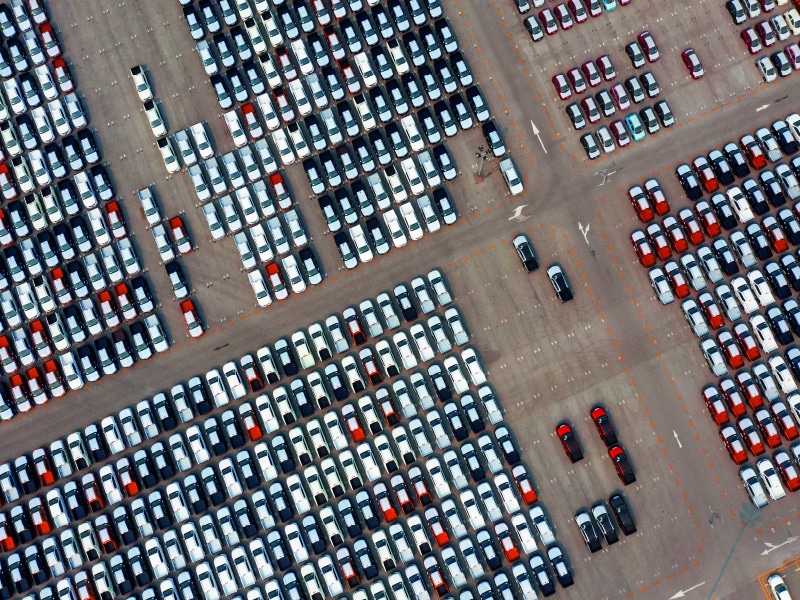New EDI standards in the automotive industry
20 June 2023
20 June 2023

The great strength of standardized EDI standards is their ability to evolve easily. New business needs, new logistics constraints, new regulations. EDI standardization organizations update their standards, publish new recommendations and anticipate future regulations.
In this article, we take a look at the latest developments in EDI standards for the automotive industry. A new DESADV message to manage packaging flows, new information to be transmitted following BREXIT, preparation for mandatory electronic invoicing. A whole range of issues to consider when implementing EDI.
Packaging is an essential element in the supply chain. In the automotive sector, packaging circulates between automakers’ assembly lines and the various component suppliers. Packaging must be available on time from the OEM to avoid delays in shipping parts to the assembly lines.
Packaging management is not a supply chain priority :
The consequences are : recurrent errors, numerous disputes, packaging losses, exceptional orders to correct, non-optimized stocks, uncontrolled packaging costs.
Automated packaging management brings greater profitability, savings in management costs and security of supply. And last but not least, a smaller carbon footprint thanks to lean inventories and optimal reuse of durable and returnable packaging. In 2019, ODETTE is making proposals for new EDI messages to manage empty packaging flows in automotive EDI standards.
Based on ODETTE’s proposals, GALIA is publishing an update to the DESADV D96A shipment notification message (AVIEXP 5.3) in February 2020.
This new GALIA DESADV profile integrates all packaging elements for shipped parts. The aim is to eliminate the need for manual entry of packaging information.
The structure and content of the new DESADV remain identical to the previous version 5.2. There is now a new block at the end of the message containing the description of the packaging elements transmitted. This ensures the downward compatibility of the new version with the previous one.
Published in February 2020, the new DESADV standard is now ready for use. There’s no need to wait until all EDI partners are ready:
The advantage of being able to migrate DESADV messages to the new D96A profile now means that you can anticipate their production launch today. And to gain a competitive edge as soon as Renault and Stellantis ask their subcontractors to switch to this new version of DESADV.
To make trade between the UK and the EU more fluid, Customs has set up a “Smart Border”. As of January 2021, this new organization brings changes.
All companies will have to be identified with an EORI (Economic Operators Registration and Identification).
All goods exported or imported must be identified with a HS (Harmonized System) code.
EORI and HS codes are available from Customs.
ASN or DESADV messages and packing lists will be updated with new information. This information must be added or updated in the messages transmitted.
Vehicle manufacturers, OEMs (Original Equipment Manufacturers) and their EDI service providers update and communicate new EDI specifications.
As of July 1, 2024, the regulations governing electronic invoicing will change radically.
The law makes electronic invoicing compulsory between VAT-registered businesses from July 1, 2024 and by January 1, 2026 at the latest.
An amendment to Article 153 was tabled on November 6, 2020 by the government for the Finance Act 2021, specifies the timetable for implementation:
The DGFIP report recommends retaining existing EDI platforms for issuing and receiving invoices. However, the platforms will be required to transmit to the DGFIP (Direction Générale des Finances Publiques) the invoicing information needed to draw up a VAT pre-declaration.
Existing invoice formats will continue to be accepted for the time being. Eventually, however, mixed formats such as Factur-X will be preferred by the tax authorities. To find out more Electronic invoicing: numerous developments for 2024.
The three case studies – Packaging Management, BREXIT and Mandatory Electronic Invoicing – illustrate the benefits of EDI for the electronic exchange of logistics and commercial data. EDI demonstrates its ability to serve companies.
EDI enables companies to be agile. Migration to the new DESADV D96A can be carried out today, with no impact on EDI or ERP solutions. The advantage will be to be immediately operational as soon as the switch to electronic management of packaging flows is acquired by principals.
EDI messages can be easily adapted to take account of new information. With BREXIT, new information needs to be transmitted, so companies and their EDI service providers can adapt ASN and DESADV messages to meet shorter deadlines.
Companies sending and receiving electronic invoices via EDI are already compliant with the new 2024 regulations. Only the platforms will have to transmit information to the DGFIP.
In conclusion, the automotive EDI standards have been evolving since their creation to adapt to the needs of the industry. In fact, the automotive industry makes no mistake in constantly adapting its messages to new needs and standards.
For over 30 years, Tenor has been helping manufacturers in the sector to implement their EDI by offering customized EDI solutions (WebEDI / EDI On Premise / EDI SaaS). Find out more about our offers and get your project off the ground quickly.